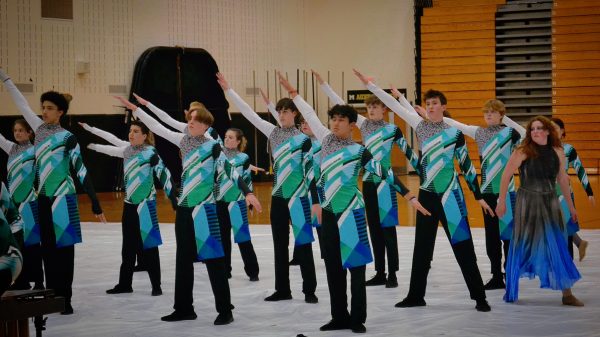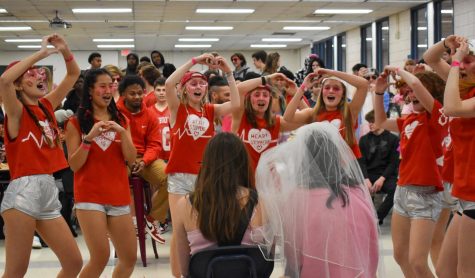“Men–Gender Equality Is Your Issue Too”; AHS Students On How Gender Stereotypes Affect Men
October 10, 2014
“We don’t want to talk about men being imprisoned by gender stereotypes, but I can see that they are. When they are free, things will change for women as a natural consequence. If men don’t have to be aggressive, women won’t feel compelled to be submissive. If men don’t need to control, women won’t have to be controlled,” Emma Watson, the Women’s Goodwill Ambassador for the United Nations said on her address to the UN on Sept. 20.
Watson is the spokesperson for a program the UN has just begun called “He For She.” The program wants to bring the other half of the population into the picture, to promote men to speak up for gender equality and to conquer gender stereotypes that affect them, too.
“How can we affect change in the world when only half of it is invited or feels welcome to participate in the conversation?”
“There won’t be any change if half of the population doesn’t work hard to make it happen,” junior Kai Millner said. Millner believes that men suffer from gender stereotyping as women do, if not as severely.
Where Millner believes that gender stereotypes affect women most in a physical sense, it is the pressure to be masculine that inhibits men from being totally themselves. “If you’re not super buff or super athletic then you kind of feel like you’ve been grouped into the nerd stereotype.”
The key to eliminating these gender-based expectations is through “awareness, empathy, and perspective,” senior Kirby Farineau said. “Abandon the archaic ideas of gender normality.”
While many self-proclaimed feminists argue that their sex is explicitly sexualized in the entertainment business, “the media does a lot to enforce male stereotypes, too” Farineau said.
The Cure’s 1980 hit, “Boys Don’t Cry,” “Be A Man” from the Mulan soundtrack, Captain America, Fight Club and thousands of other songs, movies and TV shows demonstrate themes of a traditional manliness and what characteristics lie within that theme.
Disney’s “Prince Charming” instills dreamy expectations of men in the minds of young girls who could then potentially spend a great portion of their life waiting for a “knight in shining armor” (puffy sleeves and tights), to gallop into their lives on a white stallion and save them from a cruel and cubicular reality!
“Some people may think of all men as pigs or maybe they just want to score with a woman,” senior D.G. Archer said, “but that might just be because we watch too many movies.”
Similarly because of the traditional male values portrayed in entertainment, Farineau believes “men are often told they have to be fit, tough, masculine,” and the gender-specific roles that the media places on its products and characters eventually results in feelings of alienation that affect both males and females. “We as a community and society have to join together in destroying the idea of ‘girl stuff’ and ‘boy stuff.’”
“We need to stop limiting how people use their bodies, or how people dress and act,” Farineau said. “Giving products or interests or actions a certain gender connotation is entirely useless to the well-being of everyone.”
“Men–gender equality is your issue, too,” Watson said.











